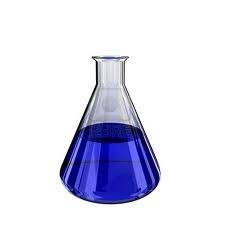Methylene Blue Successfully Augments Lamotrigine in the Treatment of Bipolar Disorder
 In a double-blind, placebo-controlled trial for patients with bipolar disorder, Martin Alda and colleagues from Dalhousie University in Halifax, Nova Scotia found that the compound methylene blue was an effective augmentation for mood stablizers. Methylene blue inhibits nitric oxide synthetase and guanylate cyclase, the overproduction of which might be associated with neuronal damage. Since bipolar disorder has consistently been associated with neuronal and glial cell dysfunction and loss, methylene blue could be a promising treatment.
In a double-blind, placebo-controlled trial for patients with bipolar disorder, Martin Alda and colleagues from Dalhousie University in Halifax, Nova Scotia found that the compound methylene blue was an effective augmentation for mood stablizers. Methylene blue inhibits nitric oxide synthetase and guanylate cyclase, the overproduction of which might be associated with neuronal damage. Since bipolar disorder has consistently been associated with neuronal and glial cell dysfunction and loss, methylene blue could be a promising treatment.
Methylene blue turns urine blue, so in place of a placebo the researchers used very low doses (15 mg daily) of methylene blue compared with the active dose of 195 mgs daily.
Thirty-seven patients were enrolled in the randomized 26-week trial, and all patients were treated with lamotrigine as their primary mood stabilizer and with any additional medications they were already taking. Patients entered in a well or euthymic state (n =20), mildly depressed (n=14), or while minimally cycling (n = 3).
Scores on both the Montgomery-Asberg Depression Rating Scale and the Hamilton Rating Scale for Depression improved significantly, with an effect size of 0.47 and 0.42, respectively. Hamilton Anxiety Rating Scale scores also improved significantly with an effect size of 0.46.
Methylene blue was well tolerated, with only transient and mild side effects observed. However, the FDA has issued a warning that using methylene blue with serotonin active agents can lead to a severe serotonin syndrome (because methylene blue is a potent inhibitor of MAO-A and will increase brain serotonin levels when used in conjunction with serotonin active antidepressants). Symptoms of serotonin syndrome can include confusion, hyperactivity, sweating, fever, shivering, diarrhea, trouble with coordination, and even seizures.
The researchers at Dalhousie University concluded that methylene blue used as an adjunctive medication to lamotrigine and other previously inadequately effective agents (only those which are NOT serotonin active) significantly improved depression and anxiety in patients with bipolar disorder. They proposed further exploration of the mechanisms involved in this change, with the possibility that other drugs with similar actions could also be effective in this disorder.
Comments
Leave a Reply

